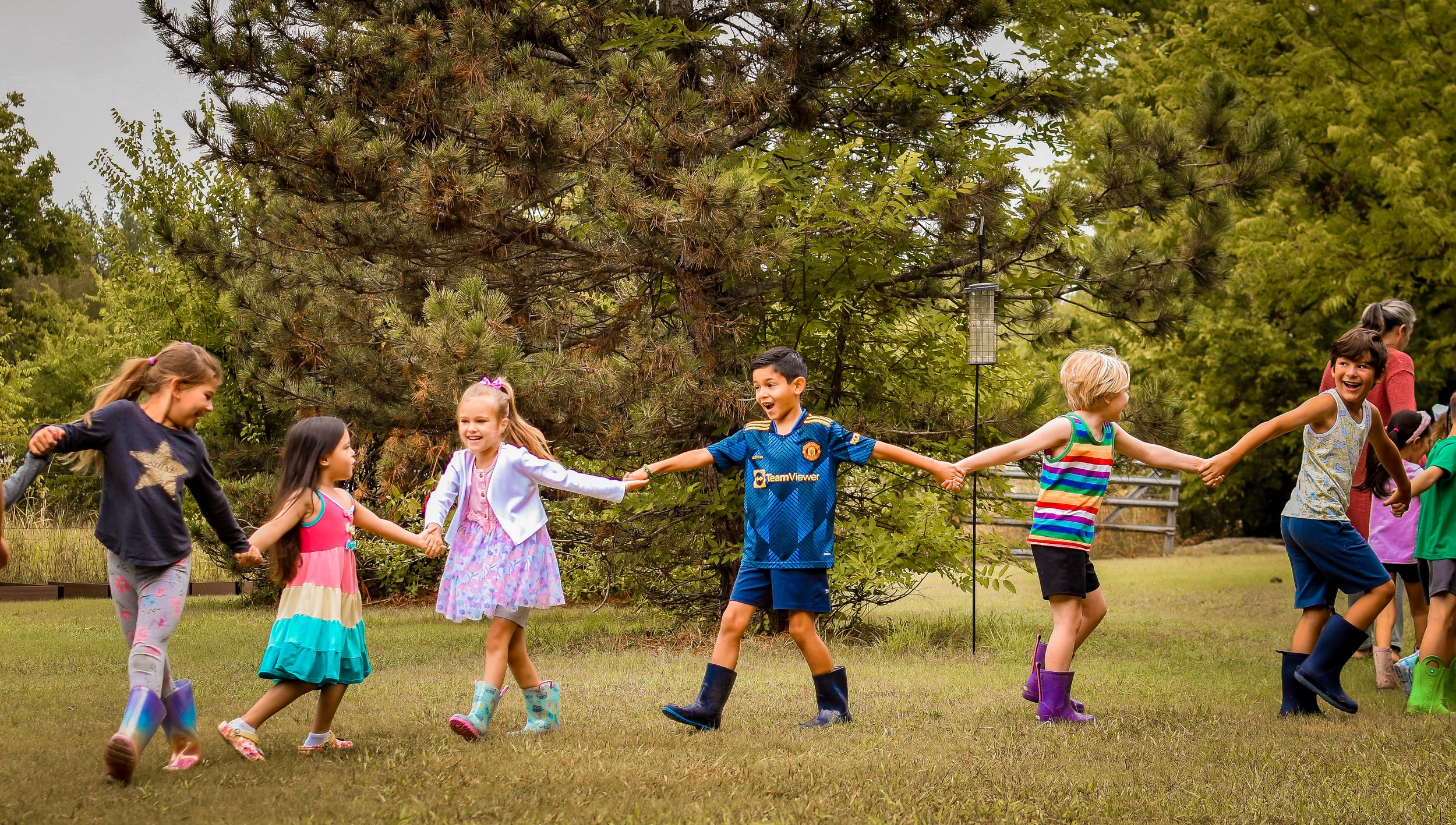
Mission
Protect the innocence of childhood.
Respectfully provide a dynamic natural environment to deepen the child’s relationship with nature.
Encourage every student’s innate curiosity.
Nature School Approach
Immersive Outdoor Learning: Engages students in hands-on experiences within natural settings to develop personal, social, and practical skills.
Multi-Age Programs: Designed for children to learn by exploring the natural environment.
Educational Philosophy: It combines experiential learning with nature, merging philosophy and environment to create a holistic educational model.
Curriculum: Specifically designed to meet and exceed TEKS (Texas Essential Knowledge and Skills standards) by utilizing minimum paperwork, maximum outdoor nature-based learning, and zero testing.
🌿🌿🌿
What is Waldorf and why we are inspired by it?
Imagination and Imitation: Emphasizes nurturing children’s creativity through immersive experiences and imitation, which are essential for early development.
Experiential, Hands-On Learning: Prioritizes hands-on activities within a structured daily rhythm, focusing on practical tasks and imaginative play.
Balanced Daily Routine: Blends free play, creative arts (like drawing and painting), and group activities (songs, games, storytelling) to foster social connection and shared experiences.
Home-Like Classroom Design: Creates a warm, familiar environment with natural materials to encourage exploration, creativity, and a comforting atmosphere.
Limited Use of Media: Restricts electronic media to support natural play, avoid sedentary behavior, and enhance imaginative engagement, aligning with holistic development goals.
Nature School of Fairview
Holistic Development Through Nature: Daily outdoor experiences foster creativity, curiosity, and balanced growth, integrating influences from Waldorf, Reggio Emilia, and Montessori philosophies to nurture academic, physical, and mental well-being.
Non-Tech Environment: Embraces hands-on activities to spark imagination, with minimal reliance on screens to encourage active engagement with nature, like building forts or playing in mud.
Commitment to Diversity: Welcomes all backgrounds, ethnicities, and beliefs, recognizing diversity as essential for enriched learning experiences.
Attentive Listening and Personalized Learning: Focuses on understanding each child’s interests, tailoring lessons to foster genuine engagement and a passion for learning.
Community and Family Support: Provides a supportive “village” for families through regular gatherings, encouraging shared ideas, friendships, and mutual support among parents and educators.
Reggio Emilia Approach
Child-Led Learning: Views children as curious, capable individuals with an innate drive to explore. Encourages self-expression, communication, and critical thinking by exposing children to diverse educational opportunities.
Core Principles:
Emergent Curriculum: The curriculum evolves from children’s interests, derived through observations and conversations. Teachers collaborate to develop projects that reflect these interests and involve parents and the community.
In-Depth Projects: Long-term, adventure-like projects based on children’s interests. Teachers guide children as they explore, represent their learning, and choose materials to support their research.
Multiple Representations: Inspired by Howard Gardner’s multiple intelligences, children learn through varied formats—such as art, music, drama, and puppetry—to ensure broad understanding.
Collaborative Learning: Emphasizes group work, where children engage in problem-solving, negotiation, and dialogue to build cognitive and social skills, balancing group belonging with individual expression.



